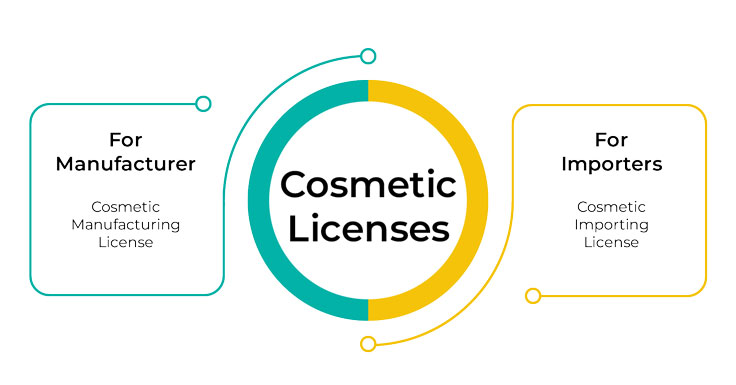Certifications Required for the Indian Cosmetic Industry
The Indian cosmetic industry is regulated under the Drugs and Cosmetics Act, 1940, and compliance with various certifications is necessary to ensure safety, quality, and legal acceptance of cosmetic ingredients and finished products. In India, cosmetic products and ingredients must meet safety, quality, and regulatory standards to be sold legally. Various certifications ensure that the products are safe for use, ethically made, and meet international standards.
Key Certifications Required for the Indian Cosmetic Industry
- CDSCO (Central Drugs Standard Control Organization) Approval: Required for the manufacturing, importing, and selling of cosmetics in India. Ensures compliance with safety and quality guidelines under the Drugs and Cosmetics Act, 1940.
- ISO 22716 (International Standard for Cosmetics GMP): Provides a global framework for best manufacturing practices. Ensures proper documentation, raw material sourcing, and product safety.
- FDA Approval (For Certain Cosmetics Containing Active Ingredients): If a cosmetic product has medicinal or therapeutic claims, it may need FDA approval. Required for cosmeceuticals like anti-aging creams or medicated shampoos.
Optional but Important Certifications for Consumer Trust
- Vegan Certification: Ensures that a cosmetic product contains no animal-derived ingredients. Recognized by the Vegan Society, PETA, and other global bodies.
- Cruelty-Free Certification (Not Tested on Animals): Confirms that no animal testing was conducted at any stage of production. Certifications include PETA’s Beauty Without Bunnies, Leaping Bunny, and Cruelty-Free International.
- COSMOS/ECOCERT Certification: Ensures natural and organic cosmetic ingredients meet global sustainability standards. Widely recognized for eco-friendly and organic cosmetics.
- Sustainability & Upcycled Ingredients Certification: Verifies that the ingredients used are eco-friendly and sourced responsibly. Aligns with the clean beauty and sustainable cosmetics trend.
Why are Certifications Required for the Indian Cosmetic Industry?
Certifications are essential in the Indian cosmetic industry to ensure product safety, quality, and regulatory compliance.
- Consumer Safety & Health Protection: Ensures that cosmetics are free from harmful chemicals, allergens, or contaminants. Prevents skin irritation, allergic reactions, or long-term health risks.
- Legal Compliance with Indian Regulations: The Drugs and Cosmetics Act, 1940, and CDSCO (Central Drugs Standard Control Organization) mandate certifications to legally manufacture, sell, or import cosmetics. Avoids legal issues, fines, or product recalls.
- Quality Assurance: Certifications like BIS (Bureau of Indian Standards) and GMP (Good Manufacturing Practices) ensure consistent quality, hygiene, and safe production processes.
Certifications are not just a legal requirement but also a business advantage. They help cosmetic brands gain customer trust, enter global markets, and maintain high-quality standards while ensuring consumer safety.

How to Get Cosmetic Registration in India?
Registering a cosmetic product in India is essential to comply with the Drugs and Cosmetics Act, 1940, and its rules. The Central Drugs Standard Control Organization (CDSCO) is responsible for regulating cosmetics in India, ensuring they meet safety, quality, and labeling standards before they can be manufactured, imported, or sold.
- Step 1: Determine the Type of Cosmetic Registration Required
- Step 2: Appoint an Authorized Agent (For Imports)- If a foreign company wants to register cosmetics in India, they must appoint an Authorized Indian Agent (AIA) who will represent them before CDSCO and handle the regulatory process.
- Step 3: Prepare and Submit the Application registration application must be submitted through the CDSCO SUGAM online portal using the prescribed forms.
- Step 4: Payment of Fees: Applicants must pay the prescribed government fees.
- Step 5: CDSCO Review & Approval
- Step 6: Compliance with Labeling & Packaging Rules
Getting cosmetic registration in India involves multiple steps, including preparing the necessary documents, submitting applications, paying fees, and undergoing regulatory review. Compliance with CDSCO guidelines ensures that only safe and high-quality cosmetics reach consumers.








